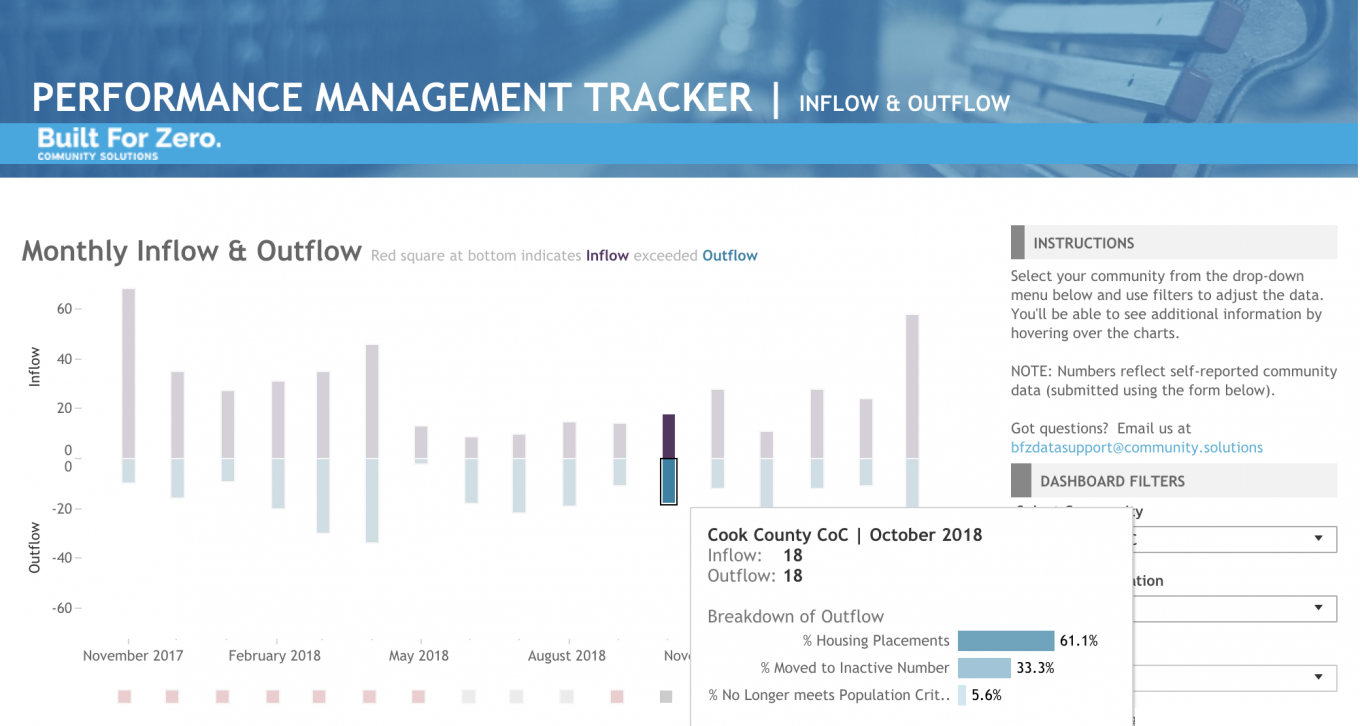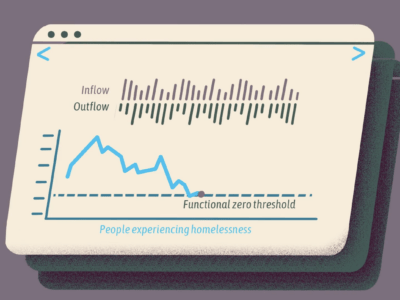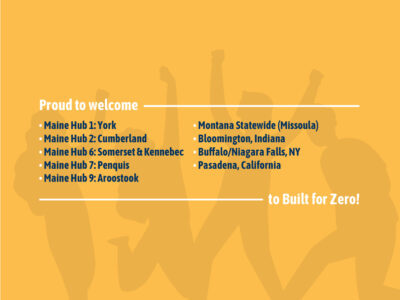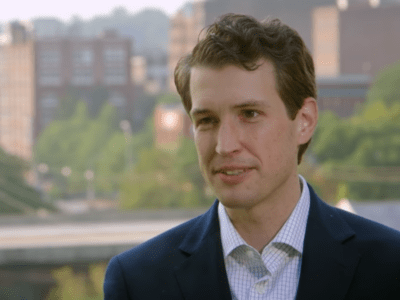What if we tracked homelessness like we do the flu or unemployment? The latest episode of NPR’s “Planet Money” podcast explores how 69 Built for Zero communities across the country are pioneering the use of real-time, individual-level data to change how they tackle homelessness — and the breakthrough results they have been able to achieve.
“Planet Money” Host Sarah Gonzalez interviewed Built for Zero Co-Director Jake Maguire to better understand how homelessness has historically been tracked and how communities are using this insight to drive reductions in the number of people experiencing chronic and veteran homelessness.
Through our work with 69 communities across the country, we know that no community can end homelessness of any kind without comprehensive, real-time, person-specific data.
“Maybe we can’t just count the homeless with flashlights once every other year.”
Historically, the data available to communities was limited to a total estimate of people experiencing homelessness on one night, collected once a year. The U.S. Department of Housing and Urban Development requires communities to collect data on the number of people experiencing homelessness every January, called a Point-in-Time count. But because the data is anonymous, cumulative, and static, communities have struggled to understand not only the true nature of homelessness in their community, but also the strategies that can tame it and how to provide the individualized support that people need. In 2016, when we retrospectively compared real-time, person-specific data over the course of the year to annualized Point-in-Time data on homeless veterans, we found discrepancies of more than 300%.
“We needed current information. We needed information that was going to be up-to-date, in real time, in every community in the country,” Maguire explains.

Built for Zero communities are able to know everyone experiencing chronic or veteran homelessness by name. They are also able to understand how people are coming into the homelessness system, who is experiencing homelessness, and whether or not they have exited the system.
Since adopting the practice of tracking real-time data, 10 Built for Zero communities have ended veteran homelessness and three have ended chronic homelessness. Sixty-nine places have achieved real-time data on at least one population of people experiencing homelessness.
There’s a lot more we want to tell you about the importance of establishing quality data than could fit in a 22-minute podcast. This excerpt from last year’s Impact Report goes into more detail. For the full story of the 100,000 Homes Campaign, referenced in the episode (and how we met our housing goal, but realized chronic homelessness wasn’t dramatically reduced), check out the full report.
Plus
The episode also unpacks some surprising economics truths around homelessness:
- Learn why New York City is spending about a million dollars a day to put up people experiencing homelessness in hotel rooms for the night.
- Did you know that it is often more expensive to ignore the problem of homelessness than to solve it?




